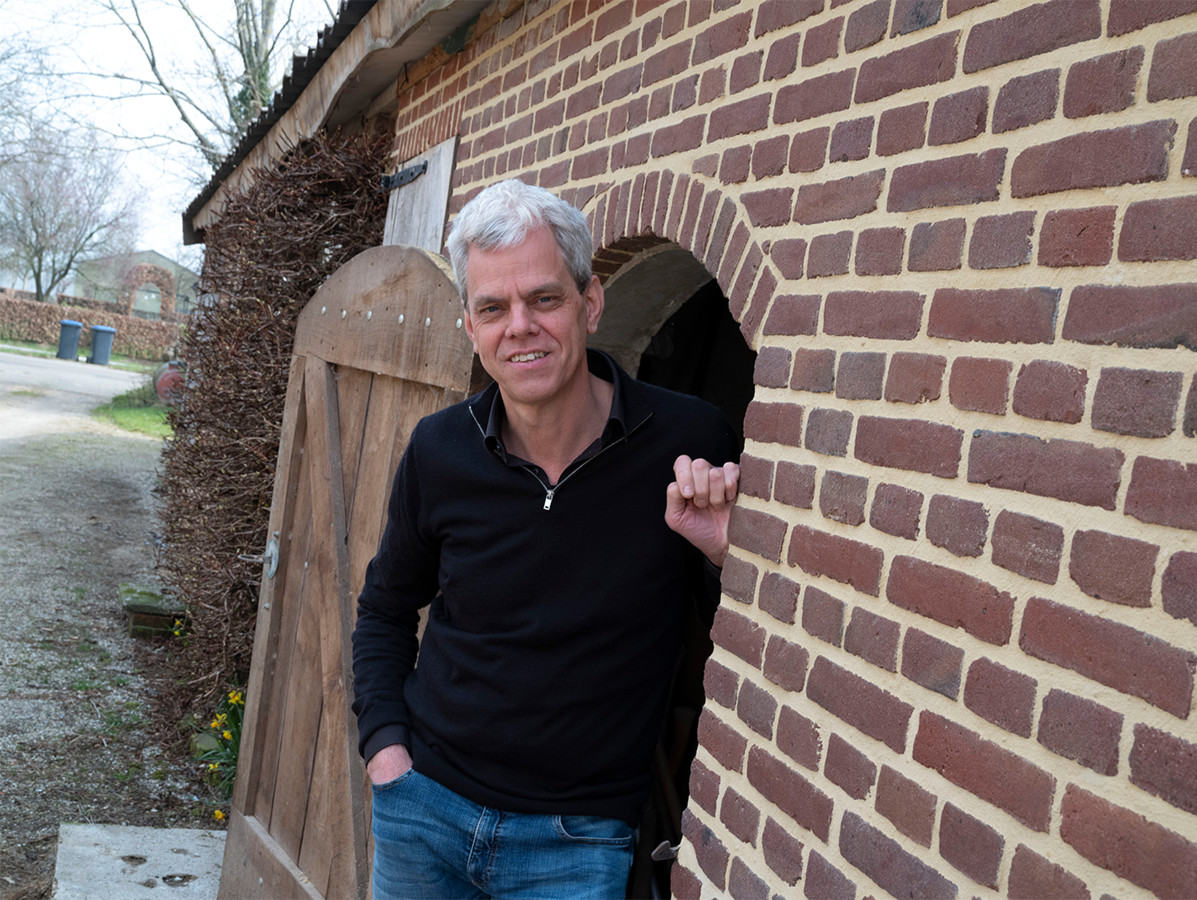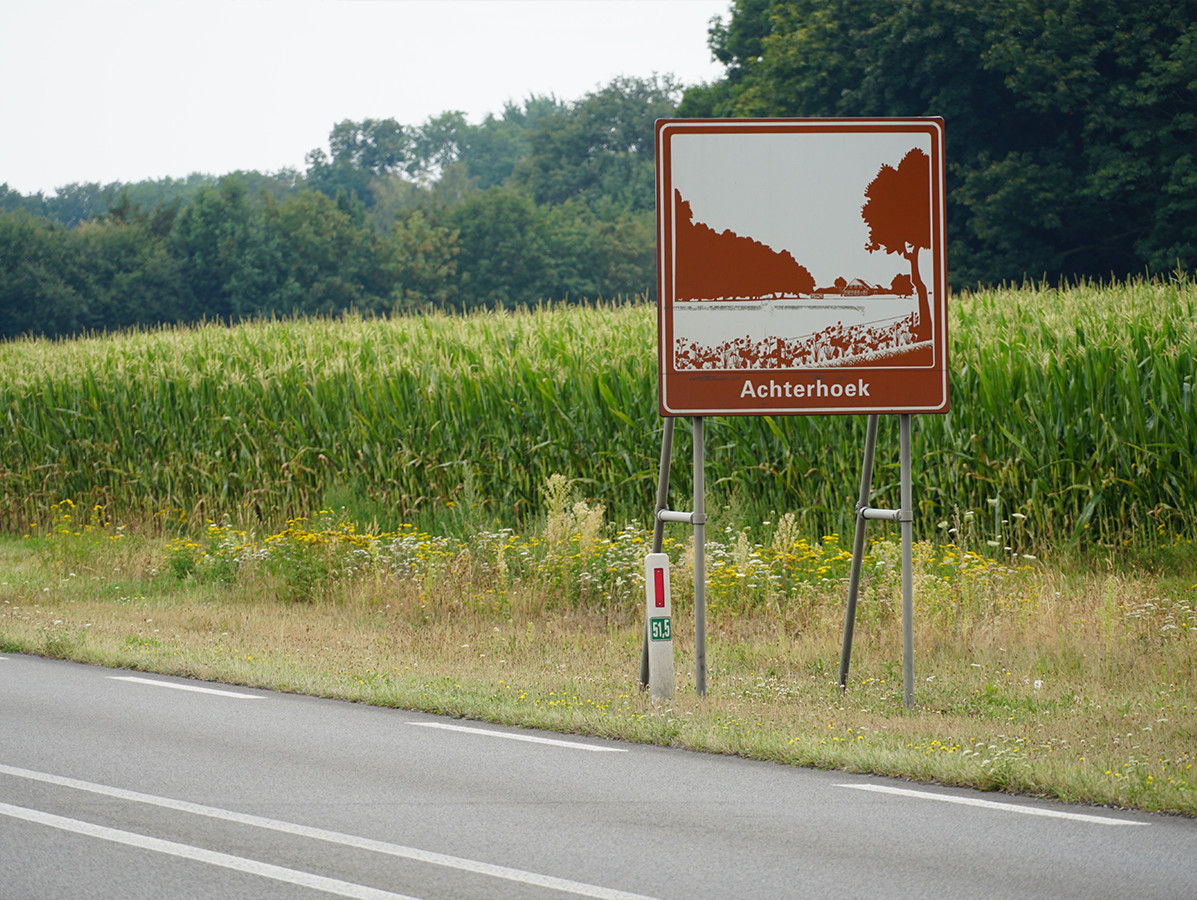
"We want to create added value and market more sustainable food products," says Maurits Steverink, project manager of the Smaakacademie (Taste Academy) Achterhoek. "Make everyone in the food chain co-producers. Modernise education. Show college students how many opportunities the SME-food sector has to offer."
Maurits Steverink comes from a farmers' family with seven children. "My parents had an old-fashioned mixed farm. After secondary school, he studied cattle breeding and general economics in Wageningen and Dordrecht. " I did university research on genetics and became interested in sustainability. I ended up in pig breeding and the meat industry. First as a trainee, later in commercial positions and as developer of chain concepts. After that, I became chain manager for the organic sector. In 2005, I decided to start my own business, 'True Food'." His background and career are decisive in setting up the Smaakacademie Achterhoek. "What I like best is to organise the chain from the origin, through the feed, to meat concepts for the consumer. To do this, you have to bring cultures together and develop products that bring in more money," Maurits explains. "In our food knowledge, there is unfortunately hardly any focus on creating added value. I would prefer a streamlined sustainable chain that is distinctive and transparent. It cannot go fast or far enough for me."
"Reforming food education. We want to market added value and more sustainable food products to all sales channels: from small and local to larger national concepts. And to enthuse entrepreneurs, the hospitality industry and fresh food specialists to work together."
"n 2013 we started the foundation Taste of the Achterhoek and the first edition of 'Smaakacademie Achterhoek'. We stimulated better secondary education about more sustainable and local food. We also organised taste workshops and excursions and published two taste books on the eco-gastronomy of Achterhoek and Liemers: 'Alles van de Grond' (Everything from the soil) and 'Alles van het Dier' (Everything from the animal). It is striking that we all consider it normal to know and mention the origin of the wine we drink; the so-called 'terroir', but that this remains unusual for many other food products. We want to transfer this 'terroir' to food. We also applied the idea of slow food to our region. This way, we let consumers see and experience that our food is related to culture, the climate, recipes, skills, ecology, animal-friendly farming, not wasting anything and above all: sitting at the table together. Because we are all co-producers of the final product.”
"According to the KNS (Royal Dutch Butchers' Association) the butcher of the future needs a higher professional education (hbo) level. That actually applies to every traditional business. Supermarkets are already further along; they enter into their own chain cooperation with farmers, sometimes with quality marks. Top quality marks already account for almost 20 percent of turnover. The province also wants both education and the labour market to be ready for the future. The market is looking for new talent and resilient, flexible employees and entrepreneurs. That is why companies and the province support educational and labour market projects such as the Smaakacademie Achterhoek."

"The current education does not sufficiently connect to the commercial practice of sustainability. It is driven by rules of the national government. People still think in old concepts. It is incomprehensible that sustainability is not a compulsory subject, while there are such major issues as climate change and concern for animal welfare. As a result, hbo students in the food sector lack a focus on the importance of cultivation and origin. Green education lacks a vision of the added value of food and its marketing. The so-called 'green' and 'grey' education should be transformed into one entity: food education."
"Funnily enough, many people do not know how big and important the 'Achterhoek food sector' is for the region. That is also because the entire chain falls under that one label, meaning industry, stall builders, food processors and sellers and so on. We know that 20 percent of businesses in the Achterhoek depend on the food sector and that it occupies 78 percent of the region's surface area, that it provides 18 percent of employment and 14 percent of the regional income. We also know that everything in the agricultural sector is becoming more expensive, due to regulations and staff costs. EU subsidies are under pressure. If we do nothing, many businesses will be forced to stop. Then the typical Achterhoek scenery will become more and more one-dimensional. My drive is that we must move away from the one-sided focus on costs and kilos and focus on the added-value strategy; on the 'Craftsmanship is Mastery' route. We must upgrade the experience. The Achterhoek can become a high-profile region in terms of food."
"The focus lies on organising food chains, channelling product concepts and valorising them for consumer segments. In the programme, we combine age-old knowledge with new, innovative techniques. But it is much more about social innovation than technical innovation alone. This is an underdeveloped area of technical education. We work together with students and teachers from Van Hall Larenstein, Saxion, Zone College, Graafschap College and the Profijtscholen. There are plenty of opportunities here for hbo graduates. Think of thesis research, also with the smaller scale SMEs. Especially if you want to be an entrepreneur, the SME food chains in the Achterhoek are interesting."
"I hope for a focus on quality and the added value of our food, in order to strengthen our scenic landscape through food experience. Achterhoek products can be marketed throughout the Netherlands and partly abroad. The demand for food with a story is greater than ever. This requires new knowledge and chain cooperation. In 2024, when this project ends, we want to be dispensable. There must be a good vision with clear learning objectives. And a policy-based anchoring of this in education, carried out by enthusiastic teachers, students and entrepreneurs. With the government alongside. Then it should be natural to think about the value of food, instead of production and kilos. We want children to learn to cook independently before they leave home, and we want citizens to be informed about the value of food for themselves and the environment. In 2024, I never want to see celebrity chefs on TV again demonstrating recipes for broilers with asparagus in January. A broiler is an imported mini chicken. And asparagus in January? That's madness."
"It's not that difficult. If you tell people how food is made, they get excited and they want to pay. People pay big money for the experience. For that reason alone, this knowledge belongs in education."
Photo Maurits Steverink: © Hans Prinsen
Photo Achterhoek: © Dafinchi/Shutterstock.com
Source: Vakblad Voedingsindustrie 2021